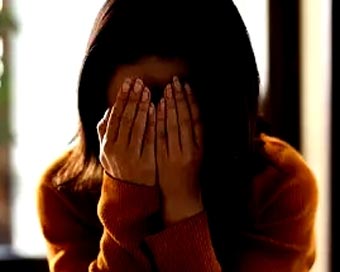 PM Modi visit USA
PM Modi visit USA Only the mirror in my washroom and phone gallery see the crazy me : Sara Khan
Only the mirror in my washroom and phone gallery see the crazy me : Sara Khan Karnataka rain fury: Photos of flooded streets, uprooted trees
Karnataka rain fury: Photos of flooded streets, uprooted trees Cannes 2022: Deepika Padukone stuns at the French Riviera in Sabyasachi outfit
Cannes 2022: Deepika Padukone stuns at the French Riviera in Sabyasachi outfit Ranbir Kapoor And Alia Bhatt's Wedding Pics - Sealed With A Kiss
Ranbir Kapoor And Alia Bhatt's Wedding Pics - Sealed With A Kiss Oscars 2022: Every Academy Award Winner
Oscars 2022: Every Academy Award Winner Shane Warne (1969-2022): Australian cricket legend's life in pictures
Shane Warne (1969-2022): Australian cricket legend's life in pictures Photos: What Russia's invasion of Ukraine looks like on the ground
Photos: What Russia's invasion of Ukraine looks like on the ground Lata Mangeshkar (1929-2022): A pictorial tribute to the 'Nightingale of India'
Lata Mangeshkar (1929-2022): A pictorial tribute to the 'Nightingale of India' PM Modi unveils 216-feet tall Statue of Equality in Hyderabad (PHOTOS)
PM Modi unveils 216-feet tall Statue of Equality in Hyderabad (PHOTOS)World Number one Jannik Sinner emerged victorious 7-6(2), 7-6(5), 6-1 against Chile’s Ni
- Shiva Thapa, Sachin Siwach shine on Day 2 of men’s Boxing Nationals
- Freya Deshmane wins gold in first Winter Horse Show organised by Amateur Riders’ Club
- Salah sets Premier League record in Liverpool's draw at Newcastle
- India Open Competition in Shotgun begins in Jaipur, paving way for Nationals' qualification
- Hockey India names Amir Ali-led 20-man team for Junior Asia Cup
Treatment for stress-induced exhaustion disorder needs to be relooked: Researchers Last Updated : 17 Jun 2024 01:52:03 PM IST 
Treatment for stress-induced exhaustion disorder needs to be Traditional treatment can tend to overlook important psychological and social aspects of stress-induced exhaustion disorder, researchers said on Monday, adding that the concept of stress needs to be discussed from a new perspective.
Despite stress being central to human development, the focus is often on the negative aspects of stress.
A new thesis at Uppsala University in Sweden questioned the traditional view of stress-induced exhaustion disorder and introduced a new model that puts more focus on meaningfulness rather than recovery.
“There are no established evidence-based models for the psychological treatment of stress-induced exhaustion disorder. The concepts of ‘recovery’ and ‘stress’ are so widely accepted in our current era that it is difficult to examine them critically,” said Jakob Clason van de Leur from the Department of Psychology at Uppsala University.
It’s easy to think that patients with stress-related exhaustion should prioritise rest and relaxation.
"But an overly one-sided focus on recovery can lead to a passive existence that it’s easy to get stuck in and can instead become harmful over time,” van de Leur added.
He has followed 915 patients with stress-related exhaustion who have participated in comprehensive rehabilitation programmes, including medical, psychological, and physiotherapeutic methods.
While the results are positive, he said this approach is relatively ineffective overall.
“The treatments used to last up to one year when I started - now we are working on a 12-week digital programme,” van de Leur informed.
Despite being a small study, "the results show similar effects to our previous six-month treatment programme, using only a quarter of the clinical resources. This means that the treatment can be made available to more patients in the healthcare system,” the researchers explained.IANS New Delhi For Latest Updates Please-
Join us on
Follow us on








172.31.16.186







